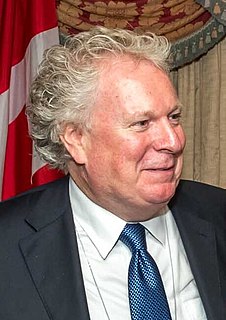A Quote by Stephen Covey
You basically get what you reward. If you want to achieve the goals and reflect the values in your mission statement, then you need to align the reward system with these goals and values.
Related Quotes
When looking for a partner, definitely find someone who has shared values. Really talk to them about what their values are, what their goals are, and how they wish to achieve those goals. Problems always do arise, but when a problem arises with someone who shares your values, you'll know that you'll want to attack that problem in the same way.
The mission statement of the RSC is to foster a constitutionally bound limited government, it's to have a strong national defense, it's to protect private property rights and it's to support American values. That's what the mission statement is. There's nothing in the mission statement about trying to hold leadership accountable.
It's not enough to have values without vision ; you want to be good, but you want to be good for something. On the other hand, vision without values can create a Hitler . An empowering mission statement deals with both character and competence; what you want to be and what you want to do in your life.
Once parents have a clear idea of their important parenting goals, beliefs, and values, they can then think about specific situations and identify the outcomes they would like to achieve in these situations. How can you be the parent you want to be whether or not your children are behaving as you would prefer?
Every decision a person makes stems from the person's values and goals. People can have many different goals and values; fame, profit, love, survival, fun, and freedom, are just some of the goals that a good person might have. When the goal is to help others as well as oneself, we call that idealism. My work on free software is motivated by an idealistic goal: spreading freedom and cooperation. I want to encourage free software to spread, replacing proprietary software that forbids cooperation, and thus make our society better.
We deem valuable whatever is likely to meet our needs or wishes (individual values) and whatever is likely to help protect or attain social goals (social values). However, this is not a dichotomy, for some individual values, such as truth, are needed to secure some social values, such as mutual trust, and some social values, such as peace, are required to pursue some individual values, such as good health.



































